2020 Student Paper Competition Award Winning Abstracts
Congratulations to the student paper competition winners and honorable mentions! The student paper competitions awards are proudly sponsored by the Divisions.
COMMUNITY RESEARCH AND DEVELOPMENT DIVISION
Winning Title: "‘Enclaves of Poverty’ or ‘Homes That Last?’: Temporality, Strategy, and Competing Ideologies in the Preservation of Affordable Homeownership"
Author: Allison S. Reed
Affiliation: University of Chicago
E-mail: allisonreed@uchicago.edu
Abstract: Not provided
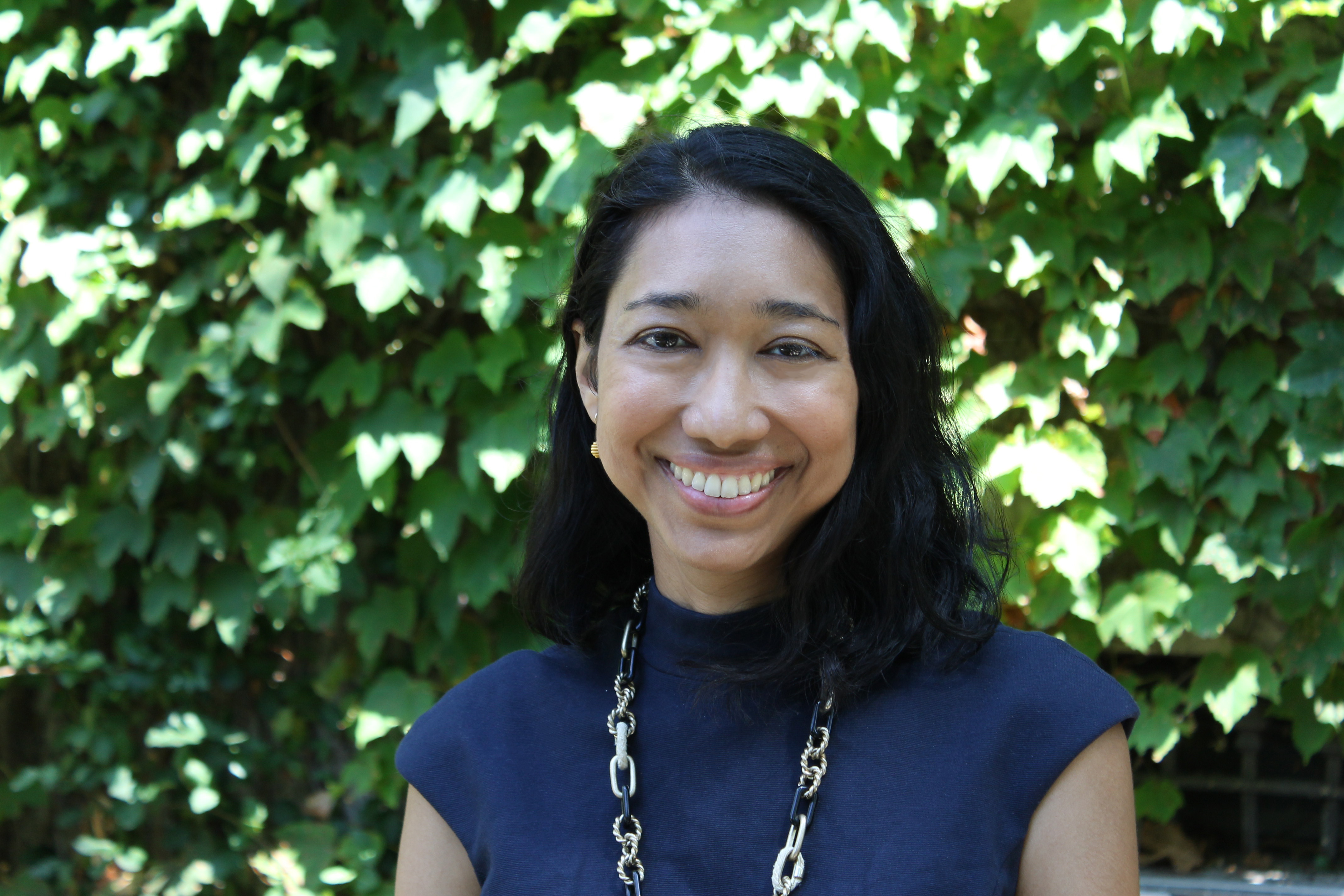 |
Honorable Mention Title:"Race vs. Ethnicity?: How Indo-Caribbeans Navigate Ethno-racial Ambiguity in New York Politics"
Author: Anjanette M. Chan Tack
Affiliation: University of Chicago
E-mail: amc75@uchicago.edu
Abstract:
This paper develops the concept of ethno-racial illegitimacy and traces its segregating consequences in the political field. Ethno-racial illegitimacy is a kind of categorical illegitimacy. It arises when a group’s ethnic affiliations and cultural identities do not fit prevailing racial schemas. Through the case of Indo-Caribbean political incorporation in New York, I show that ethno-racial illegitimacy blocks ethno-racially hybrid group’s access public resources, incentivizing group representatives to abandon racially-integrated ethnic attachments and instead perform to officially legible ethno-racial type. Indo-Caribbeans are West Indians of South Asian descent. They are one of the 5 largest immigrant groups and one of the largest South Asian descent groups in New York City. As phenotypically Indian but ethnically both Indian and West Indian, Indo-Caribbeans trouble common racial schemas that equate racial phenotype with ethnic affiliation. This paper unpacks a paradox that emerged in my fieldwork: Although many Indo-Caribbeans in New York identify as ethnically West Indian, their community representatives assert an Asian political identity. I use the concept of ethno-racial illegitimacy to explain this paradox. I show that official racial rubrics mis-recognize the hybridity of groups like Indo-Caribbeans, rendering them illegitimate claimants for public funds. Indo-Caribbeans are pressured to make their communities legible within prevailing racial rubrics to access resources; leading them to perform essentialized “Indian/South Asian” identities and to de-emphasize strong affective ties to Afro-West Indians. Through the Indo-Caribbean case, I show how official racial schemas produce categorical illegitimacy for hybrid groups, inducing political conflict within communities that are racially-integrated in everyday life.
CONFLICT, SOCIAL ACTION, AND CHANGE DIVISION
 |
Winning Title: "Beyond Elites and Movements: Subterranean Activism and Anti-corruption Reform"
Author: Luiz H. Vilaça
Affiliation: University of Notre Dame
E-mail: lvilaca@nd.edu
Abstract:
Dominant theories on why state organizations manage to become more effective emphasize the executive will of political elites or pressure from social mobilization. However, these theories cannot explain the case of anti-corruption reform in Brazil, where investigative agencies managed to convict hundreds of corporate executives and politicians from multiple sectors of the state, in a case known as Operation Car Wash (CW). In this paper, I compare CW with four failed anti-corruption investigations in Brazil. Drawing on original interviews with prosecutors, detectives, and judges, I show that Car Wash succeeded because investigative bureaucracies gradually managed to build autonomy and capacities to fight corruption. I argue that the empowerment of investigative bureaucracies was enabled by an iterative process that moved back and forth between interventions from elites and movements, and the proactive efforts initiated by committed bureaucrats that are less visible to the public and to political elites, which I call subterranean activism. This concept suggests that bureaucrats may be able to effectively fight corruption when they behave in similar ways to social movement activists, such as by building internal organizational structures, cultivating external networks, and creatively reinterpreting rules.
CRIME AND JUVENILE DELINQUENCY DIVISION
 |
Winning Title: "Social Media, Selective Transparency, and Pursuing Legitimation of Police Violence"
Authors: Tony Cheng
Affiliation: Yale University
E-mail: tony.cheng@yale.edu
Abstract:
Every day, police officers stop, arrest, summons, and increasingly, tweet. While scholarship has focused on how social media democratizes news production and information sharing for activist movements, it has yet to explore how police leverage these very attributes to advance institutional interests. Beyond existing understandings of police use of social media as either digital surveillance or community engagement, this study explores social media as selective transparency—the strategic release and selective withholding of information. I argue that by affording police the technological capacity to engage in selective transparency, social media constitutes a new tool for police to pursue both (a) daily socialization of online audiences to police’s worldview and (b) legitimation in the aftermath of contested police violence. I provide evidence by adopting a qualitative approach to “big data” sources analyzing: (1) all 3,167 tweets posted by the New York Police Department in 2018; (2) the 778 Twitter replies to their most contested fatal shooting that year; and (3) all 139 news articles covering this shooting. As police increasingly operate in an environment of heightened scrutiny, social media for selective transparency offers important implications for the episodes of police violence that do and do not elevate into national controversies.
DISABILITY DIVISION
 |
Winning Title: "Blindness Imagination: Chinese Pre-modern Perspective on Visual Disability"
Author: Nan Lin
Affiliation: Katholieke Universiteit Leuven
E-mail: linnan1215@gmail.com
Abstract:
Disability group in China has been under severe social discrimination and neglect for a long time, but domestic disability study falls way short in addressing the epistemological pitfall. In facing the limited, stagnated medical model of disability studies in contemporary China, it is urgent to challenge the social normalcy and to push a new understanding not through rigid application of western disability discourse that might seem alien to the Chinese cultural environment, but through showcasing interpretations that is culturally close and socially compatible. Mediating on different approaches that have been tested and proposed by previous studies, I made an attempt in this paper to look back to the pre-modern view of blindness, examining its social and cultural fabrication by referring to a wide range of other disciplines such as philosophy, medical science, literature and religion, to explore the interrelatedness between philosophical, ecological, religious ideology that is crucial in shaping the public image of blindness in pre-modern era. I also discussed how the idea of harmony, self and multiple realities embedded in pre-modern view of being in the world can be critically applied to problematize the binary between the sight and blind and possibly enlighten on the path towards a more inclusive and understanding social environment that accommodate all human conditions. The culturally and historically distinct case is not only a practice to question the contemporary social and cultural construction of the blindness, but also to provide an alternative understanding might contribute inspiration and insights to the post-modern disability development.
DRINKING AND DRUGS DIVISION
 |
||
Bruce D. Johnson Paper Winning Title: "‘Fake’ Disabilities and Drug Money: Everyday Welfare Surveillance in the Opioid Era"
Author: Kristina P. Brant
Affiliation: Harvard University
E-mail: kbrant@g.harvard.edu
Abstract:
As welfare policies increasingly surveil and criminalize recipients, researchers have been examining the consequences of the devolution of poverty governance to everyday citizens. I consider this question in an increasingly important context—rural communities that have witnessed a dramatic rise in opioid use. Drawing on two years of ethnographic fieldwork and 93 interviews in Central Appalachia, I examine how the opioid epidemic has impacted everyday citizens’ understandings of the welfare state. Because the medical and institutional precursors of opioid addiction mirror those of disability claims, I find that the epidemic has magnified concerns that drug users abuse the welfare system. Residents across economic backgrounds question the legitimacy of welfare recipients’ disability claims and routinely suspect drug use—breeding distrust and political cynicism. These findings suggest that the epidemic has helped undermine, rather than increase, both social cohesion and perceptions of political efficacy.
EDUCATIONAL PROBLEMS DIVISION
 |
|
Winning Title: "Cultural Sidelining: How Campus Cultures across University Contexts Shortchange Working-class, Hispanic Students"
Author: Alma Nidia Garza
Affiliation: University of California, Irvine
E-mail: angarza@uci.edu
Abstract:
As universities strive to accommodate a rising number of underrepresented students, how do their campus cultures align with minority student cultures? Despite the socialization power inherent in routine campus exchanges, scant research considers how quotidian, class-based repertoires shape the experiences of students arguably least familiar with college culture—working-class, racial-ethnic minorities. Using semi-structured interviews and participant observation, I compare how Hispanic students attending a moderately selective institution and their co-ethnic counterparts attending a regional university contend with cultural hierarchies that impact their growth and inclusion. I propose that universities engage in a practice of cultural sidelining. Students are unable to engage with or exercise elements of sidelined cultures depending on the set of behaviors endorsed on campus. Because Hispanic students are unable to fully engage an ethnic working class or mainstream middle-class culture depending on the university they attend, I argue that sidelining helps conceal ongoing forms of cultural exclusion.
Keywords: culture, social class, race, higher education, Latina/os
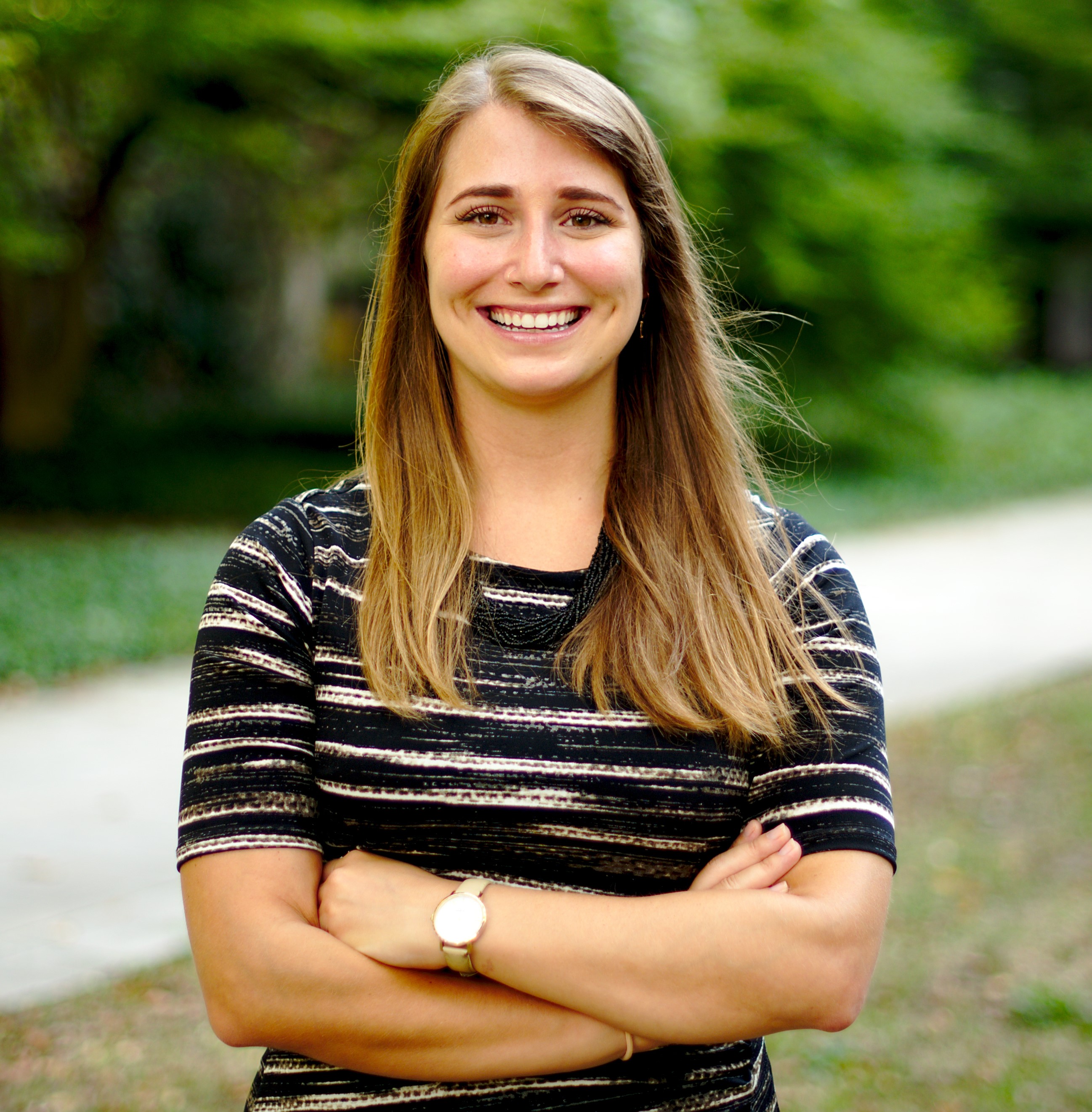 |
Honorable Mention Title: "In School for After School: The Relationship between Extracurricular Participation and School Engagement"
Author: Karlyn J. Gorski
Affiliation: University of Chicago
E-mail: gorski@uchicago.edu
Abstract:
School engagement predicts academic achievement and attainment, yet remains under-theorized in the sociological literature. While psychologists describe three distinct yet mutually-reinforcing categories of school engagement (behavioral, emotional, and cognitive engagement), sociologists have largely neglected to analyze cognitive engagement. Drawing on ethnographic observations and interviews with members of two debate teams in Chicago Public Schools, I demonstrate that behavioral engagement in the form of debate team participation helps build cognitive and emotional engagement in school. Through the activity, debaters develop strong relationships with peers and their adult coaches, and strengthen their appreciation for challenging aspects of the learning process. Although many debaters ultimately feel that the learning environment of the debate team is more stimulating than their classes, they apply the skills and attitudes they acquire in the activity to the “core” curriculum of the school. In this way, they build a stronger connection to the institution of the school via their behavioral engagement with the debate team. While existing sociological literature has used monolithic or dual (behavioral-emotional) frameworks of school engagement, I document how cognitive engagement can help explain the positive impact of “peripheral” activities on students' academic achievement.
Honorable Mention Title: "The Racialized, Classed, and Gendered Logics of School-based Criminal Justice Interventions"
Author: Mai Thai
Affiliation: Indiana University, Bloomington
E-mail: maithai@iu.edu
Abstract:
Much of the research on the criminal justice system’s contact with low-income youth of color has primarily focused on punitive interactions, which leads scholars to focus on how youth get criminalized as delinquent. This paper flips this framework and examines junior police academies, school-police partnerships that aim to cultivate discipline and morality among its members, as a microcosm of contemporary youth interventions to understand what behaviors are valorized and the assumptions driving these approaches. Based on over 25 months of fieldwork, data show that strategies to produce good community citizens reflect racialized, classed, and gendered assumptions about vulnerable youth and have implications for short-term advantages and long-term inequalities.
ENVIROMENT AND TECHNOLOGY DIVISION
 |
|
Brent K. Marshall Paper Winning Title: "Like Wildfire: Creating Rumor Content in the Face of Disaster"
Author: Rebecca G. Ewert
Affiliation: University of Chicago
E-mail: rgewert@uchicago.edu
Abstract:
Rumors spread during disasters as community members seek information and attempt to make sense of unexpected and anxiety-producing events. While considerable sociological research has examined the transmission and spread of rumors, less attention has been given to the creation of rumor content. Drawing on interviews with wildfire survivors in one Northern California county, this study shows that rumor creation reflects existing cultural values and power arrangements. Rumors are used to reframe new information to maintain coherence with existing beliefs about government actors and local groups. Furthermore, rumors reinforce existing ideas about safety, deservingness, and class. In this case, rumors are created to reflect two existing schemas: cultural beliefs about the government and environmental protection, and power arrangements instantiated through spatial stigma. Rumor narratives provide residents with opportunities to reframe information to explain and justify unequal disaster outcomes.
Keywords: rumors, disaster, stigma, framing, culture
GENDER DIVISION
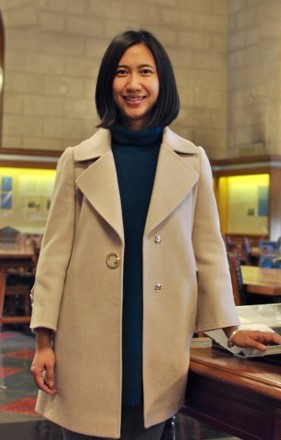 |
|
Winning Title: "Rightful Bargaining: Rural Women Making Claims for Social Provisions in China"
Author: Ruijie Peng
Affiliation: The University of Texas at Austin
E-mail: ruijie.peng@utexas.edu
Abstract:
Previous scholarship on how citizens make claims against authoritarian states focuses on collective strategies people use to organize public protests or to work with civil society groups. This collective perspective neglects, however, to account for the alternative tactics of individual contention that citizens often must resort to when an authoritarian state systematically represses and denies them access to collective forms of protest and claims-making. Based on fifteen-months of ethnographic fieldwork in a rural ethnic-minority community in southwest China, this study addresses that gap by analyzing how Qiang minority women leverage legitimate gendered expectations and gendered performances to initiate claims (often but not always successfully) to secure much-needed social provisions. I call this type of gendered individual claims-making “rightful bargaining.” While appearing to accommodate the state’s priority for social stability, these women have found ways to perform roles as familiar, non-threatening subjects who exploit the rhetoric and gaps in the system to get their needs met. Yet, paradoxically, because the state’s legitimacy is founded precisely on economic growth and the appearance of popular consent, this study also reveals that the aggregate material gains these women have made from their everyday claims-making inadvertently reinforce the authoritarian regime’s overall legitimacy, domination and control.
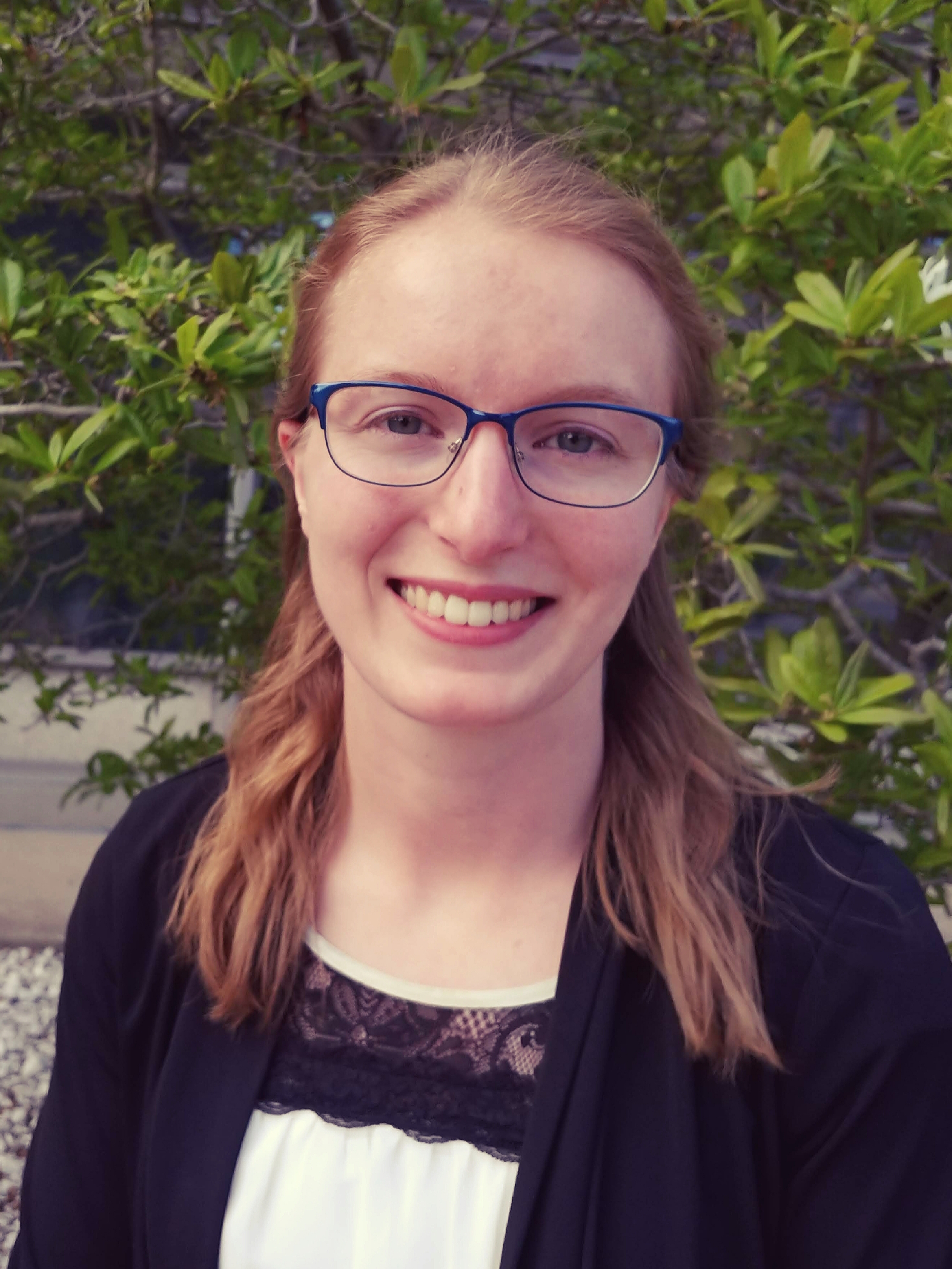 |
Honorable Mention Title: "Gender Polarization: When and Where Partisanship Shapes Women’s U.S. Political Representation"
Author: Morgan C. Matthews
Affiliation: University of Wisconsin-Madison
E-mail: mmatthews5@wisc.edu
Abstract:
This paper argues that partisanship has come to define gender inequalities in representative politics in context-specific ways over time. Longitudinal trends show divergence in parties’ representation of women at the state legislative level between 1981 and 2019. This process of gender polarization developed unevenly across the United States, and examination of the exceptional cases shows that it was not inevitable. I show how strategic party efforts and local political histories produced gender polarization earliest in state houses with stable Democratic majorities and those that transitioned to Democratic Party control. In contrast, party regime changes to Republican control led to gender polarization only during or shortly after this change. By the 2010s, “new” Republican-controlled states had the highest levels of gender polarization on average. Finally, drawing on state-level covariates, I analyze partisanship’s independent effects in three distinct time periods (1975-79, 1995-99, and 2015-19) and find that the effect of partisanship on women’s political representation has reversed direction and has become the strongest contemporary predictor of women’s political presence net of existing explanations for women’s representation. When partisan contests for state legislative control become gender polarized, substantive representation suffers and it produces a deficit in democracy.
 |
Honorable Mention Title: "Women Left Behind: Migration, Agency and the Pakistani Woman"
Author: Sarah Ahmed
Affiliation: University of Oregon
E-mail: sahmed2@uoregon.edu
Abstract:
This paper examines how migration impacts power dynamics and gender norms for women left behind living in rural Southern Punjab, Pakistan, a site where patriarchal customs and religion are interwoven to confine women’s mobility and agency. Based on qualitative interviews with women left behind, focus groups, and participant observations from 2015 through 2018, this paper explores how local rural-to-urban male migration patterns impact the decision-making powers of women who are left behind and must make sense of the family structure and gender dynamics in their homes after their husbands’ exit. This study finds that in the absence of her migrant husband, a woman left behind is still subject to patriarchal norms and surveillance by the remaining in-laws, including other women. Citing specific examples from the field, I explain why women left behind remain close to the very families that confine and monitor their movement, and why, in some cases, women left behind turn a blind eye toward their husband’s second or third marriage. Through an examination of behind-the-scenes negotiations that women left behind make, I argue that women maintain for themselves at surface level the gendered expectations that patriarchy sets for them; but given the opportunity, they can negotiate and bargain their positionality in subtle ways without disrupting the status quo that could otherwise jeopardize their physical safety and social reputation (honor).
GLOBAL DIVISION
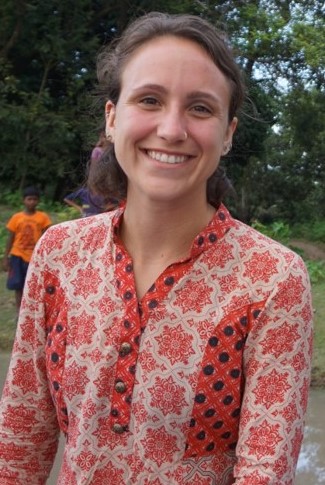 |
Winning Title: "The Ideal Delegation: How Institutional Privilege Silences ‘Developing’ Nations in the UN Climate Negotiations"
Author: Danielle Falzon
Affiliation: Brown University
Email: danielle_falzon@brown.edu
Abstract:
In the UN climate negotiations, not all national delegations are equal. Scholarship on the negotiations has consistently demonstrated that countries with greater geopolitical power have greater influence in this arena than globally marginalized nations. Despite scholarly attention to this inequality, the literature has not yet elucidated how global hierarchies materialize in the negotiations. This study fills this gap by examining the lived experiences of delegations and their negotiators at negotiations under the United Nations Framework Convention on Climate Change (UNFCCC). Drawing on 30 interviews and over 200 hours of observation at five UNFCCC meetings, I ask: (1) how are institutional structures in the UNFCCC aligned with norms of nationhood and development?; (2) how are these norms experienced by national delegations and their negotiators?; and (3) what does this reveal about institutional inequality and privilege in this context? Building on institutional and organizational studies of work, and literature on Developmental Ideals, I identify four characteristics of an ideal delegation to the UNFCCC, that are based in norms of development and nationhood and privileged by the structures of the institution: large, English-speaking, with Western scientific and legal expertise, and the ability to send the same negotiators year after year. I demonstrate how countries that vary from the privileged norm and cannot send an ideal delegation find that the institutional structures prohibit them from engaging effectively. Ultimately, they must develop coping mechanisms to creatively compensate for their systemic disadvantages.
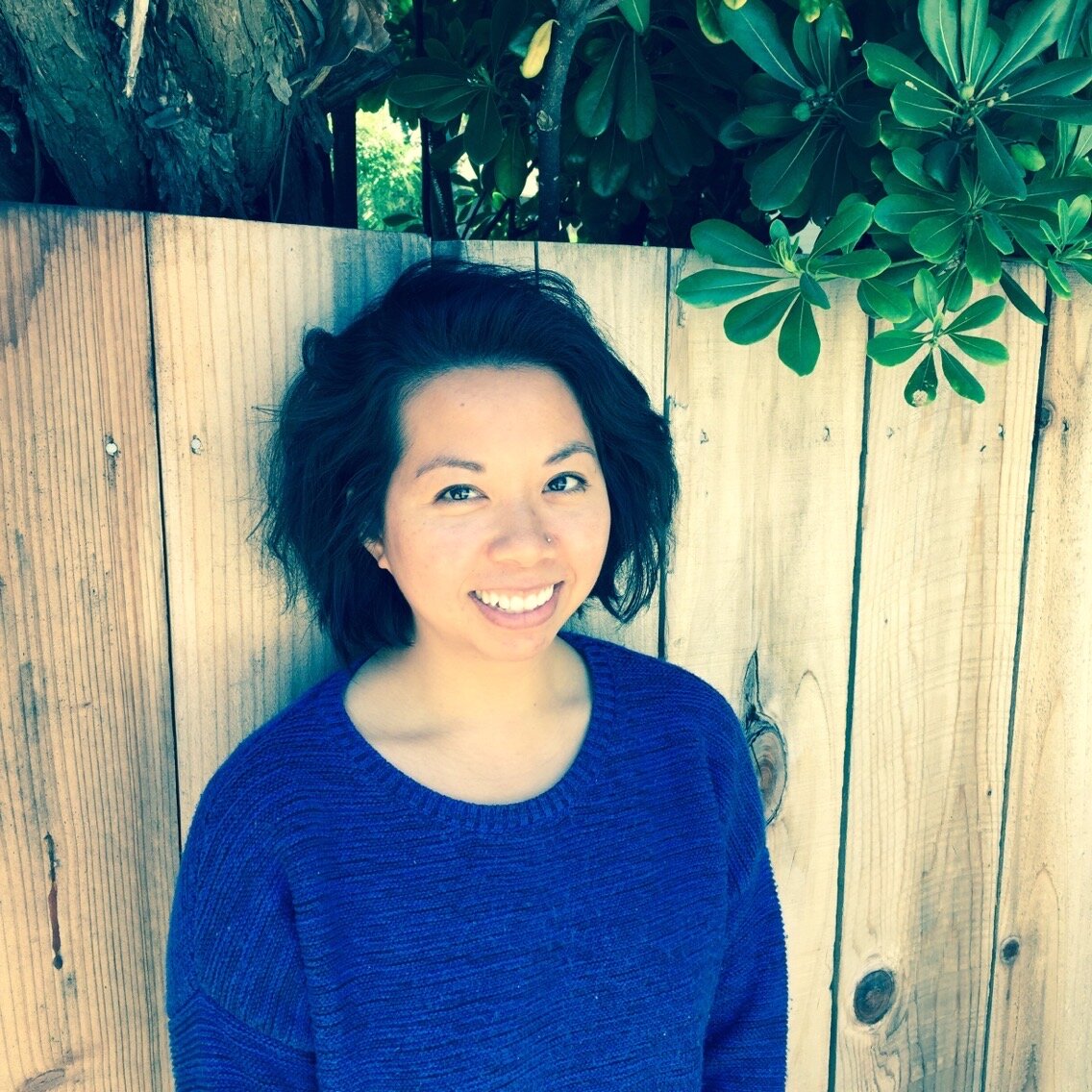 |
Honorable Mention Title: "Marrying into Overseas Labor Markets, Laboring into Local Marriageability: Gendered Migration Strategies in Global Vietnam"
Author: Phung N. Su
Affiliation: University of California, Berkeley
E-mail: pnsu@berkeley.edu
Abstract:
Drawing on a comparative ethnographic and interviewing case study of rural Vietnamese women and men migrants, this paper examines how a combination of political economy and culture shapes conditions under which women and men embark on migration pathways. Within a backdrop of national and regional economic transformation in Vietnam and Asia, Vietnamese migrants’ experiences call attention to an intimate relationship between marriage migration and labor migration. The findings in this paper offer a nuanced perspective that contributes to the rich literature on gender and migration by bringing analyses of marriage migration and labor migration into conversation. By explicating the linkages between marriage migration and labor migration for women and men, I demonstrate how gender paves different pathways for women and men and the ways in which migrants utilize particular strategies for mobility. In this way, I push for an integrated theory of migration that recognizes the concurrence of migration threads employed by individuals in their movements across spatial divides.
HEALTH, HEALTH POLICY, AND HEALTH SERVICES DIVISION
 Winning Title: "The Role of Science in Shaping Surveillance of Pregnant Bodies: The Case of WIC"
Winning Title: "The Role of Science in Shaping Surveillance of Pregnant Bodies: The Case of WIC"
Author: Annie McGlynn-Wright
Affiliation: Tulane University
E-mail: amcglynnwright@tulane.edu
Abstract:
A substantial literature has demonstrated the importance of the perceived race, gender, and class statuses of policy targets in shaping punitive and surveilling social welfare policies. Despite the pregnant body being an important site of political contestation, pregnancy status remains under-examined in the context of social welfare development. Using comparative historical methods and relying on congressional, presidential and other archival data from the 1960s to 1970s, I examine the emergence of two food assistance programs—one generally targeted (SNAP) and one targeted specifically at pregnant individuals, infants, and young children (WIC). I argue that pregnant individuals were easily constructed by politicians and advocates as medical subjects. Viewing WIC recipients through a medical framework necessitated medical responses—food distribution was performed within medical centers, program evaluations required health metrics, and eligibility criteria necessitated a medical assessment of nutritional risk. These programmatic elements defined hunger and malnutrition for pregnant people, infants, and children within a medical framework, reinforced the importance of medical professionals to the program, and allowed for a level of bodily surveillance unprecedented in other food assistance programs. I discuss the implications of program criteria for the privacy rights of WIC recipients.
INSTITUTIONAL ETHNOGRAPHY DIVISION
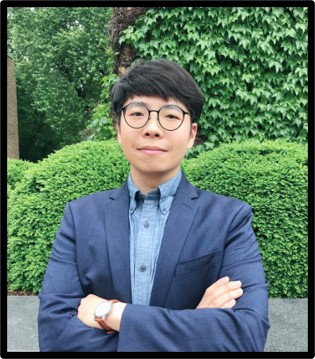 Winning Title: "Invisibilizing Politics: Accepting and Legitimating Ignorance in Environmental Sciences"
Winning Title: "Invisibilizing Politics: Accepting and Legitimating Ignorance in Environmental Sciences"
Author: June Jeon
Affiliation: University of Wisconsin-Madison
E-mail: jjeon24@wisc.edu
Abstract:
Although sociologists have explored how political and economic factors influence the formation of ignorance in science and technology, we know little about how scientists comply with external controls by abandoning their prior research and leaving scientific innovations incomplete. Most research in science and technology studies (STS) on ignorance has relied on structural and historical analyses, lacking in situ studies in scientific laboratories. Drawing on institutional ethnographic research, this article examines the habitus of ignorance as a mechanism of the social production of ignorance. Scientists have a set of dispositions that establish practical contexts enabling them to ignore particular scientific content. Leaders of the organization repeatedly legitimate the abandonment of unfinished projects, while ordinary laboratory scientists internalize the normalized view that the scientific field is inherently opportunistic and that unfunded research should be left undone. A cycle of legitimation and acceptance of ignorance by actors at distinctive positions within the organization provides a mechanism of social control of scientific knowledge. As the mechanism is habitually self-governed by the rules of the game of current scientific institutions, the result is an indirect, although deeply subjugating, invisible and consolidating form of political and economic domination of the scientific field.
LABOR STUDIES DIVISION
 |
|
Winning Title: "Selling a Resume and Buying a Job: Stratification of Gender and Occupation in International Migration from Indonesia"
Author: Andy Scott Chang
Affiliation: University of California, Berkeley
E-mail: andygiu@gmail.com
Abstract:
This study examines why and how state and commercial actors construct gender and occupational hierarchies in guest worker programs by comparing the migratory procedures for female domestic workers and male industrial operators from Indonesia. I introduce the notion of multilateralism to theorize the stratification of global migration. In multilateral labor markets, governments, brokers, employers, and migrants in several receiving and sending countries jostle for labor and employment. The home care market is governed under the rubric of “selling a resume,” whereby Indonesian regulators and brokers pass on recruitment costs to employers, in a context where migrant domestics possess alternative destination options due to their prestige fostered through skill training. By contrast, Indonesian factory workers expend capital to “buy a job” from overseas brokers, but they are outbid by migrants of other nationalities with stronger credentials or higher brokerage fees. Indonesia’s weak position among origin states has compelled suppliers to develop competitive selection mechanisms to secure industrial employment. Based on 19 months of multi-sited ethnography and 86 interviews in Indonesia, Taiwan, and Singapore, this article finds that social actors’ capacity to negotiate the terms of exchange is contingent on their structural locations within a global hierarchy of competing nation-states.
POVERTY, CLASS, AND INEQUALITY DIVISION
 Winning Title: "The Segregated Decline of Child Care and the Political Origins of Organizational Deprivation"
Winning Title: "The Segregated Decline of Child Care and the Political Origins of Organizational Deprivation"
Author: Jennifer W. Bouek
Affiliation: Brown University
E-mail: jbouek@udel.edu
Abstract:
The inequitable distribution of social service organizations contributes to embedded systems of racial and economic inequality, yet research into how service delivery is impacted by complicated state-nonstate relationships is lacking. This article investigates the puzzling decline of child care centers in Boston’s nonwealthy, nonwhite neighborhoods during the 2010s. Contrary to existing accounts, which focus on concentrated disadvantage and political patronage, the paper draws on a multi-year, multi-methods study to trace the unequal outcomes to organizational cross-subsidization strategies. In high- and low-income neighborhoods alike, child care centers traditionally subsidize the high costs of infant care with more lucrative preschool classrooms – a strategy recently closed off by the expansion of the city’s universal public preschool program. An alternative private cross-subsidization strategy is available for centers in high-income communities, leading to the decline of subsidized slots in wealthy neighborhoods but the closure of entire centers elsewhere. Findings suggest that, especially under conditions of limited welfare state expansion, understanding the inequitable distribution of services requires attention to overlapping organizational jurisdictions and the intricacies of organizational accounting.
 |
Honorable Mention Title: "Simulating Poverty and Stimulating Change"
Author: Samantha Plummer
Affiliation: Columbia University
E-mail: sp3847@columbia.edu
Abstract:
Researchers have demonstrated the ways that the state and its surrogates attempt to modify the behavior and desires of poor people using a variety of disciplinary, penal, and therapeutic technologies. But what about the events and technologies organizations use to modify the habitus of employees the state gives contracts and expects to work on and engage ‘the poor’? How do these events and technologies theorize the connections among their emotions, attitudes, knowledge, behavior, and social change?
In this article, I consider the poverty simulation— an interactive immersion experience designed to increase awareness, promote social empathy, and inspire local change—as an instructive social phenomenon for thinking about how organizations and communities conceptualize, explain, and address poverty and other ‘social problems.’ Based on participant-observation at poverty simulations and meetings where they were planned, content analysis of materials used to facilitate poverty simulations, and interviews with facilitators, I make three specific claims.
First, simulation facilitators frame poverty (and, implicitly, other social problems) as something you have to feel to understand and cast traditional methods of teaching and learning about poverty (usually via “numbers” and “statistics”) as inadequate, unconvincing, and susceptible to cynicism. Second, facilitators trust specifically in feelings with a negative valence and high arousal value, which they see as accurate and therefore believable replicas of the feelings experienced by people living in poverty. Third, for facilitators and organizers the simulation (and the feelings it inspires) is an alternative route to social change that does not involve the contention and confrontation typically associated with the ‘political’. I conclude by briefly outlining some questions and approaches that sociologists who study poverty, social problems, and civic engagement can take to researching and theorizing these increasingly popular “simulations for social change.”
RACIAL AND ETHNIC MINORITIES DIVISION
Winning Title: "Immigration Discourse, Race-based Resource Allocation, and Political Identification: An Experiment"
Author: Victoria Shantrell Asbury
Affiliation: Harvard University
E-mail: vasbury@g.harvard.edu
Abstract: Not provided
 |
Honorable Mention Title: "Beyond the Binary: Intraracial Diversity in Family Organization and Black Adolescents’ Educational Performance"
Author: Christina Cross
Affiliation: Harvard University
E-mail: crossc@fas.harvard.edu
Abstract:
Using a nationally representative sample of African American adolescents from the National Survey of American Life Adolescent supplement (NSAL-A), this study examines intraracial diversity in two key dimensions of family organization—family structure and family integration—and assesses their relationship with youths’ educational performance, namely, grades, grade repetition, and number of suspensions. Results show that there is substantial within-group heterogeneity in family organization among African Americans, and that patterns of organization varying systematically by level of household resources, specifically household income. Results also indicate that the relationship between family structure and family integration and black adolescents’ educational performance differs by resource level. These factors are generally unrelated to the grades, grade repetition and number of suspension of adolescents from low-income households, but they are associated with these outcomes for adolescents from the most economically advantaged households. Irrespective of household income, findings demonstrate that the substantive impact of family organization on black youths’ educational outcomes is small, which suggests that family organization has a more limited relationship with black Americans’ life chances than previously theorized.
SEXUAL BEHAVIOR, POLITICS, AND COMMUNITIES DIVISION
 |
|
Winning Title: "Dual Legal Consciousness of Transgender Rights-seekers: Reinforcing Legal Hegemony through Demands for Inclusion"
Author: Kyla Bender-Baird
Affiliation: The Graduate Center, CUNY
E-mail: kbenderbaird@gradcenter.cuny.edu
Abstract:
Based on interviews with 20 trans right-seekers in the U.S., this paper argues that trans people display a dual legal consciousness as they utilize the law while remaining cognizant of the ways law fails to fully include them. Legal consciousness is the study of the way people think about, understand, and use the law. In one of the canonical studies of legal consciousness, Ewick and Silbey (1998) identified three schemas that describe how people weave their understanding of law into everyday interactions. “Before the law” is the story law tells about itself where in law is an objective space separate from everyday life that operates through fixed rules and is both authoritative and predictable. “With the law” considers the law as a sort of game wherein players have access to different resources to increase their odds of winning. “Against the law” portrays the law as an imposing powerful force, invading people’s everyday lives. Pre-marriage equality, LGBT legal consciousness scholars asked what happens to legal consciousness when a social group if excluded from formal equality? In their analysis, they reimagined Ewick and Silbey’s legal consciousness schemas, finding that when outside the law, “against the law” appears not as evading the law but demanding admission. Until now, studies of LGBT legal consciousness have focused almost exclusively on same-sex couples and their marriage and family issues with no published studies of transgender legal consciousness. The current study examines trans people’s multiple forms of legal engagement including name changes, employment discrimination, divorce and/or custody disputes, housing issues, and personal injury. By studying multiple forms of legal engagement, the study reveals how people continue to utilize the law even when it fails to fully include their social group. Depending on where they live, participants were able to access some rights and protections while being excluded from other. From this legal in-between, which I refer to as a borderland, participants develop a dual legal consciousness they saw themselves as a rights bearer while also seeing themselves as legally excluded. From this position of exclusion, participants demanded inclusion, reinforcing legal hegemony.
SOCIAL PROBLEMS THEORY DIVISION
|
|
Winning Title: "When Noxious Ties Help (or Do No Harm): The Case of Addiction"
Author: Joseph Wallerstein
Affiliation: Harvard University
E-mail: jwallerstein@g.harvard.edu
Abstract:
Sociologists have long argued that severing noxious or delinquent social ties can prove essential to overcoming criminal engagement, addiction, and other troubling life circumstances. Yet in examining how actors overcome narcotic addiction, I find numerous instances of such ties persisting and either helping or doing no harm. Why is this? Drawing on fieldwork and interview data, this article proposes that potential noxious ties can have the opposite effect when they exhibit nonjudgmental attitudes in the face of an actor’s slip-ups, model for an actor the worst-case scenario, and/or encourage an actor to enact nascent self-restraint. The article makes contributions to the literature on “negative” or “difficult” social ties, tie dissolution, and recovering from turmoil over the life course.
SPORT, LEISURE, AND THE BODY DIVISION
 |
|
Winning Title: "Feeling like a Freak: Men Baton Twirlers, Compulsory Masculinity, and the Fag Discourse"
Authors: Trenton M. Haltom
Affiliation: University of Nebraska-Lincoln
E-mail: tmhaltom@huskers.unl.edu
Abstract:
Regulating men’s gender and sexuality occurs through “fag discourse.” Fag discourse is especially prominent for boys and men in activities associated with women and girls. How do subjects of fag discourse respond? Through qualitative interviews with 30 American men baton twirlers, I find a response to fag discourse is to emphasize valuable characteristics of masculinity (rather than sexuality) as if it were compulsory to their performance of gender. The men understood baton twirling is a “blemish” as a violation of heterosexual manhood. Participants’ narratives also illustrate the hardships of experiencing fag discourse. In response, they reappraise their relationship to masculinity by attempting to regain masculine credit through mastery and success. I argue this is evidence of the compulsoriness of masculinity. That the men feel elements of masculinity are necessary for acceptance perpetuates essentialist notions about who can twirl. Compulsory masculinity complements other responses to fag discourse like compulsive heterosexuality.
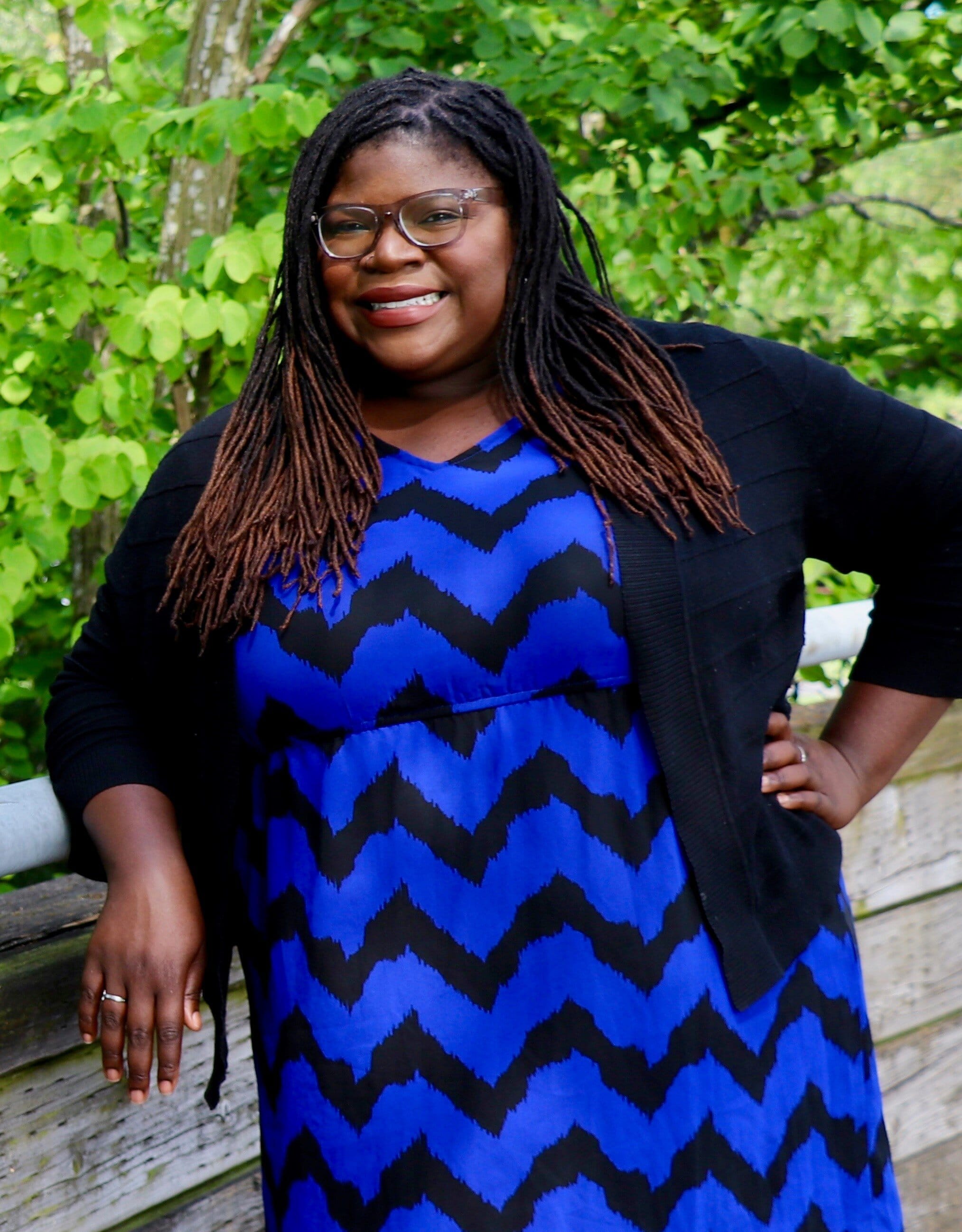 |
Honorable Mention Title: "#ImWithKap: Celebrity Influence, Frame Diffusion, and Youth Activism"
Author: Shaonta' Allen
Affiliation: University of Cincinnati
E-mail: allen3se@mail.uc.edu
Abstract:
During the 2016 season, Colin Kaepernick’s demonstrations on the football field drew attention to the Black Lives Matter Movement and the ongoing issue of police brutality in America. Soon after, student athletes across the country began to use their local sport platforms to protest in a similar fashion. While scholarly literature commonly acknowledges social media and popular culture’s ability to entertain, distract and even pacify youth, thus deterring political activism, studies have yet to address whether or not celebrities can alternatively inspire youth engagement in social activism. To examine this further, the present study investigates how Kaepernick’s social activism influenced youth athlete-activists. A content analysis of 590 articles covering athlete-activism between August 2016 and May 2018 reveals that stories covering youth activists shared four media frames with stories covering Kaepernick’s protests: (1) The Agitation Frame, (2) The Responsibility Frame, (3) The Protest Frame, and (4) The Backlash Frame. Given these findings, I argue that frame diffusion - the process in which movement beliefs, objects, and practices spread from one social location to another - is evidenced here as high-school and college athlete-activists adopted Kaepernick’s political ideologies and demonstration tactics. This study ultimately extends our understanding of celebrity influence by illustrating how professional athlete-activism can inspire and mobilize youth activists.
YOUTH, AGING, AND THE LIFE COURSE DIVISION
 |
|
Winning Title: "Grandparenthood, Grandparenting, and Working Longer: Do the Genders of Grandparent and of Grandchild’s Parent Matter?"
Authors: In Jeong Hwang
Affiliation: Harvard University
E-mail: ihwang@g.harvard.edu
Abstract:
With gains in population health, grandparents are better equipped to play an active role in grandchild care, which is in higher demand due to the rise of working mothers and insufficient public provision of childcare assistance. On the other hand, working longer has become imperative for those at risk of post-retirement financial precarity. As a result, grandparents might potentially experience the same tension between paid and unpaid work that younger workers are susceptible to. I examine changes in older workers’ engagement in paid employment following their transitions to grandparenthood. Because women are traditionally considered caretakers, I expect the risk of quitting paid work will increase more for women compared to men when they become grandparents. For the same reason, I expect that the risk of exit will increase more for older workers of both genders when daughters, compared to sons, become parents, as parental support often addresses adult children’s needs. Using the Health and Retirement Study (HRS), I find that becoming a grandparent is associated with a higher exit risk only for female workers and for both sons’ and daughters’ babies. Male workers’ average exit risk remains unchanged, but this null average result masks the increase in maternal grandfather’s exit risk. These findings suggest that the effect of becoming a maternal grandfather more closely resembles that of becoming a grandmother than that of a paternal grandfather and that gendered expectations surrounding caregiving persist across generations.

